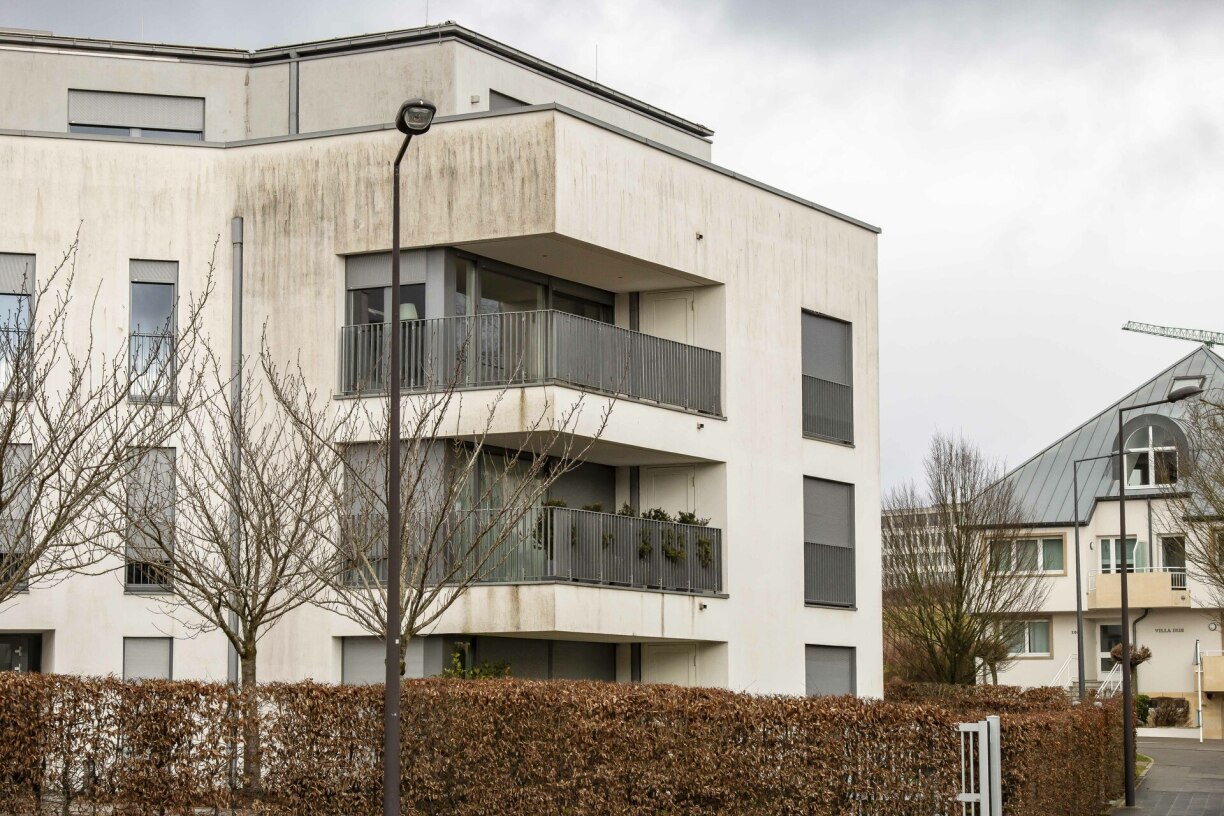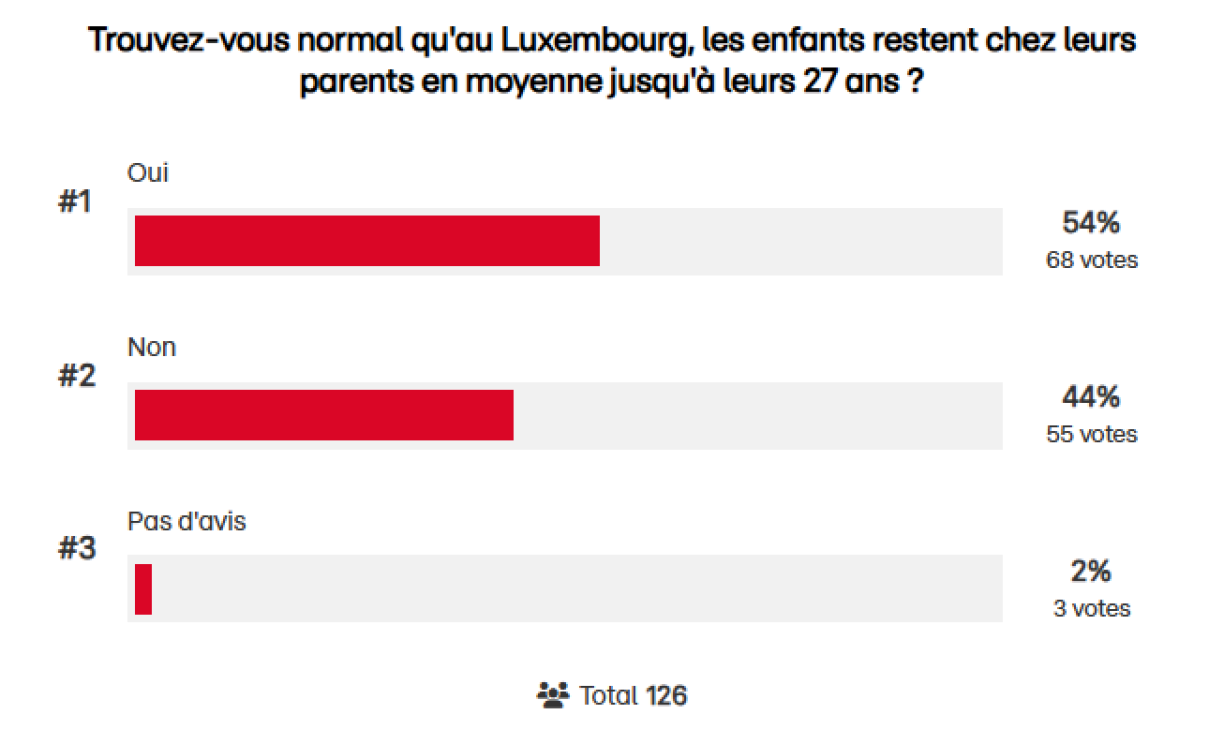
Leaving home at 18 is more myth than reality for most young adults in the Grand Duchy. As revealed in a previous report, the actual average age for flying the nest in Luxembourg is 27.
But staying with parents into adulthood does not always mean comfort or laziness. As many readers shared, for a growing number of young people, it is simply not a choice – it is a necessity.
The primary culprit? No surprise: housing prices. Luxembourg’s property market has become so unaffordable that even well-educated, full-time workers are struggling to secure independent living.
But housing is not the only factor. Extended periods of study, the high cost of living, and later life partnerships are all pushing back the age of independence.
Still, for some this transitional period is a necessary evil – a chance to save money or avoid soaring rent. And for others, it is even a source of comfort: some parents say they are happy to have their grown-up children stay a little longer.
Here are our readers’ stories – the frustrations, the compromises, and the rare silver linings of staying home longer.
“Housing just isn’t affordable anymore!”, writes ‘Bibi’. “Both of my children had to move to Germany after leaving home – and they both have university degrees!”
Many readers echoed her frustration.
“It’s the reality now – life is expensive, and studies take longer”, confirms ‘XY’. “Rents are sky-high in Luxembourg, and landlords don’t want flatmates. Even with two incomes, it’s hard to make ends meet.”
Others recalled how different things were just a few decades ago.
“With today’s prices, I’m not surprised young people struggle”, writes ‘Ca’. “When we got married in 1978, we lived with our parents for three years to save. Then we moved into a brand-new house. That simply wouldn’t be possible today.”
Some, like ‘Andrée’, believe expectations may also be part of the problem: “Young people today want too much comfort too soon. Nobody wants to start small anymore. What happened to fixing up a place yourself and building it up over time?”
Chanti shared her children’s experience of navigating the current market:
“Our daughter moved out at 19 but lived with her friend’s parents until they could afford a place. Our son left home at 26 after buying a property with his girlfriend. With our help, they bought a home because rent was already more expensive than the mortgage.
“Thankfully, they secured a good 30-year fixed rate. But today? Prices and rates have both climbed. How can anyone save for a down payment while paying rent? Honestly, it makes sense that many stay home longer.”
Finally, ‘Électeur’ took aim at the structural forces behind the crisis: “The younger generation simply can’t afford housing in Luxembourg. Square-metre prices are outrageous, and rent is just as bad. Developers shouldn’t be allowed margins above 40%, and large landlords – especially those with more than two properties – should face higher taxes.
“That would help stop foreign investors from turning our housing market into a profit machine. If there’s one thing politicians need to fix, it’s this.”

‘Nnn’ shares a pragmatic view: “If the living conditions allow it, why not? For parents, it’s not exactly enjoyable to stay alone in a spacious house either.”
‘Gawazor’ is firm in their stance: “Pushing young people out is shirking parental responsibility. In many other cultures, multiple generations live together, and it works well because values are passed down. That’s no longer the case in the West, where we’re witnessing a steady erosion of core values.”
‘Papo’ adds: “It doesn’t surprise me. They’re still studying, and even after graduating, finding a job takes time. Then there’s the housing crisis – sky-high rents and buying is out of reach unless you inherit something. Living with parents allows them to save a little.”
‘Martin’ agrees: “It’s better to stay with your parents than struggle to pay rent and bills.”
‘L’ points out the financial advantage: “It’s smarter to save up for a future property than to throw money away on overpriced rent.”
‘Tete’ highlights the emotional and psychological safety: “If the family environment is loving and there’s enough space, staying home longer can be reassuring. Especially with how harsh the education system and job market have become for young people who are still trying to find their place in society.”
‘Eden’ gives a personal example: “My son is still living at home, and he’s nearly 33. But with property prices today, how can a young person even hope to move out?”
‘Carine’ sums it up with solidarity: “Life is only getting more complicated. The family should remain a safe haven. We need to stick together and face adversity as one.”

‘CV’ shares a personal and painful perspective from a blended family: “What about the hell of blended families – which often feel more broken than blended? How many more years do I have to put up with my wife’s son from her first marriage, when his biological father never even cared for him?”
‘Céline’ expresses empathy for young adults: “I really feel for them. It’s hard to live a full adult life – even having a romantic or sex life becomes complicated when you’re still living at home.”
‘StefR’ is blunt: “It’s difficult for both sides – for parents and for kids. It creates tension.”
‘Nnn’ adds a note of criticism: “Yes, rents and property prices are high – but let’s be honest: having food, shelter, and laundry taken care of for free is also very convenient.”
Ana Paula frames the situation as a societal injustice: “It’s unfair. Everyone should have the right to live independently. Instead, young people are trapped – it’s like a prison.”
‘Ainat’ outlines the broader economic challenges: “Young people just can’t afford to live on their own anymore. Rents are too high, phone plans are more expensive than in other countries, wages are too low, and everything – petrol, electricity, water – costs too much.
“For couples with children, living on one salary is nearly impossible. And for students, once child benefits stop, the state student grant is nowhere near enough. Often, it’s the grandparents who step in – if they can.”